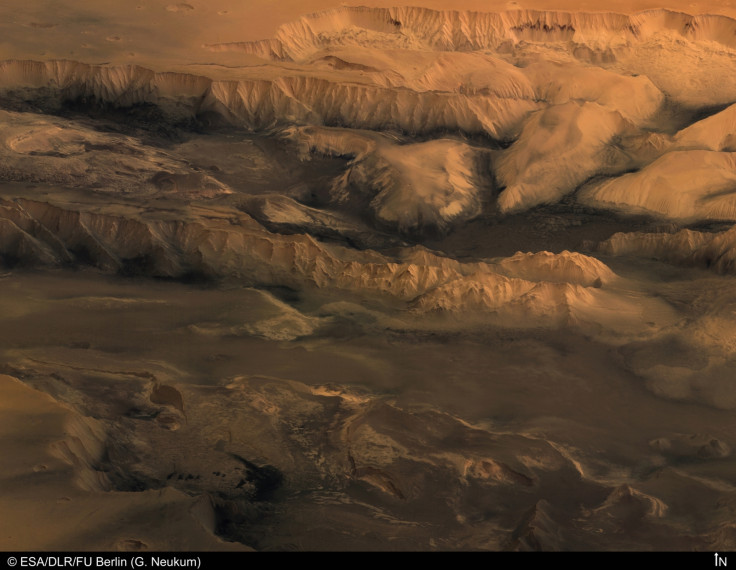Robotic Rock Climbers Ready to Help Scientists' Mars Water Probe
Robot that can scale cliffs might help find signs of life of Mars

A robotic rock climber that can scale the faces of steep cliffs might one day help explore Mars and find signs of life, space researchers say.
Their experiments showed the robot could help scientists to examine hard-to-reach places on the red planet, where gullies, canyons and steep cliffs are found.
Astrobiologists will use the robot climbers, called Cliff Reconnaissance Vehicles (CRVs), or Cliffbots, to probe exposed layers of rock, providing vital information about whether water was once present on Mar's surface, and what kinds of life this may have supported.
Austrian scientists tested the Cliffbot technology in the Moroccan desert near Erfoud, where the Saharan geology and topography is similar to that of Mars.
Cliffbot was steered by operators as they wore the Aouda.X spacesuit, an outfit designed to simulate the atmosphere and experience on Mars. The scientists experimented with Cliffbot by descending over cliffs by lowering the robot 150ft down into gullies.
The researchers say that Mars' lower gravity should make it easier for Cliffbot's operators to lower it to look at items of interest, since on Mars the Cliffbot would weigh roughly 38% of what it does on Earth.
The researchers added that in the future, Cliffbot carry the same kinds of scientific instruments that are used on Mars rovers, such as methane detectors, to detect the presence of the organic gas that would suggest the presence of life on Mars.
It could also carry lasers that could detect other molecules that are potential signs of life, such as chlorophyll.
Further experiments with Cliffbot are planned in Utah in 2015.
© Copyright IBTimes 2025. All rights reserved.





















